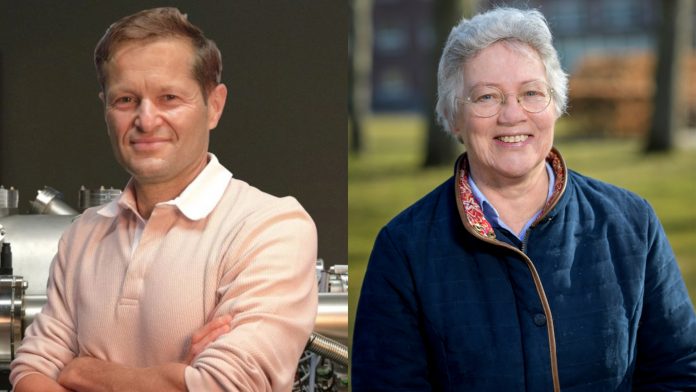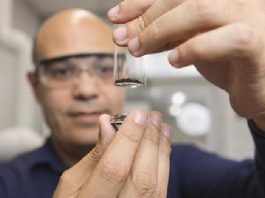Ferenc Krausz and Anne L’Huillier, funded by the European Research Council (ERC), have today been awarded the 2023 Nobel Prize in Physics.
They won the Nobel Prize in Physics alongside Pierre Agostini for experimental methods that generate attosecond pulses of light for the study of electron dynamics in matter.
This brings the number of ERC grantees who have won a Nobel Prize up to 14. The ERC has backed the pioneering frontier research of Professors Krausz and L’Huillier with four major individual grants, worth nearly €9.5m.
About the Nobel Prize in Physics winners
Anne L’Huillier is a Swedish-French physicist and professor of atomic physics at Lund University, Sweden.
Prior to winning the Nobel Prize in Physics, she has been backed over the past 15 years with three ERC Advanced Grants and three top-up grants worth €7.1m.
She is working on the interaction between short and intense laser pulses and atoms. Professor L’Huillier’s research has advanced the understanding of the dynamics of electrons within atomic systems. In parallel, her discoveries in the field of ultrafast laser technology have opened up further scientific opportunities in this field.
Ferenc Krausz is a Hungarian-Austrian physicist at the Max Planck Institute of Quantum Optics and the Ludwig Maximilian University of Munich, Germany.
As well as winning the Nobel Prize in Physics, he has been funded with ERC Advanced Grants of €2.5m to carry out a five-year research project on 4D imaging of fundamental processes on the atomic and sub-atomic scale.
He and his research team were the first to generate and measure attosecond light pulses and used them to capture electron motion inside atoms.
Aside from winning the Nobel Prize in Physics, these two ERC grantees also won the Wolf Prize together.
The importance of scientific research in the EU
“Congratulations to this year’s laureates of the Nobel Prize in Physics! I am really proud that the European Research Council has substantially funded these outstanding scientists in their revolutionary research,” stated Iliana Ivanova, Commissioner for Innovation, Research, Culture, Education and Youth.
“This showcases the importance of funding eminent researchers and giving them the resources they need to succeed in their scientific endeavours to the benefit of humankind.”
ERC President Professor Maria Leptin added: “The Nobel Prize in Physics is the highest recognition of their scientific excellence.
“This shines a light on the outstanding talent hosted in Europe and on the need for the EU to keep investing in the best free fundamental research that is cutting new ground.”





